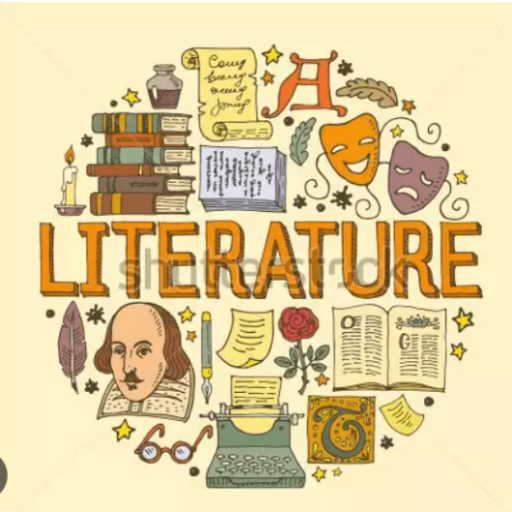Samuel Beckett’s play “Waiting for Godot” is a masterpiece of 20th-century theatre that embodies existentialist themes. We can find Existentialism in Waiting for Godot. Through its minimalist setting and repetitive dialogue, the play explores the absurdity and futility of human existence.
With its portrayal of characters trapped in a seemingly meaningless existence, “Waiting for Godot” raises profound questions about the nature of existence, the search for meaning, and the human condition.
Advertisement
This article will examine the key existentialist themes in the play, exploring how Beckett’s work reflects the philosophy and ideas of existentialism.
Advertisement
Existentialism in Waiting for Godot
The Absurdity of Human Existence
In “Waiting for Godot,” the characters’ lives are marked by a sense of absurdity and meaninglessness. The play presents a world where time is cyclical, events repeat themselves, and progress is elusive.
Advertisement
Through the characters’ futile attempts to find meaning and purpose, Beckett emphasizes the existentialist notion that life is inherently absurd and devoid of inherent meaning.
Advertisement
The repetitive and circular nature of the play’s structure reinforces this theme, highlighting the characters’ perpetual waiting and their inability to escape their existential predicament.
The Search for Meaning
One of the central existentialist themes in “Waiting for Godot” is the characters’ relentless search for meaning. Estragon and Vladimir, the play’s protagonists, anxiously await the arrival of Godot, a figure who may offer answers and purpose.
Their quest for meaning reflects the human desire to find significance in an otherwise chaotic and uncertain world. However, the elusive nature of Godot’s arrival and the lack of concrete answers underscore the existentialist idea that meaning must be created by individuals themselves in the face of an inherently meaningless existence.
The Human Condition and Alienation
“Waiting for Godot” explores the human condition and the sense of alienation experienced by its characters. The play presents a world in which communication is often futile, connections are tenuous, and individuals are isolated from one another.
The characters’ struggles with loneliness and their inability to fully connect with each other reflect the existentialist idea that human beings are fundamentally alone in their existence.
Beckett’s portrayal of Estragon and Vladimir’s fragmented and strained relationship highlights the challenges and limitations of human connection in an absurd and alienating world.
Freedom and Responsibility: Existentialism in Waiting for Godot
Existentialism emphasizes the concept of individual freedom and the responsibility that comes with it.
In “Waiting for Godot,” the characters are confronted with choices and the freedom to act, yet they often seem paralyzed and unable to make meaningful decisions.
Beckett’s play reflects the existentialist notion that individuals are responsible for creating their own meaning and must confront the consequences of their choices.
The characters’ indecisiveness and dependence on Godot illustrate the struggle to take agency in an uncertain and absurd world.
Time and the Passage of Time
Time and its perception play a significant role in “Waiting for Godot.” The characters are trapped in a state of perpetual waiting, where time seems to stretch indefinitely. Beckett’s deliberate use of repetition and circular structure reflects the existentialist idea that time is subjective and arbitrary.
The characters’ preoccupation with time highlights the human struggle to understand and navigate the passage of time in an existence that may lack inherent meaning.
The play invites contemplation on the fleeting nature of human existence and the challenge of finding purpose within the confines of time.
The Struggle with Identity
In “Waiting for Godot,” the characters grapple with their sense of identity and self. Estragon and Vladimir frequently question their own names, roles, and memories, suggesting a fragmented and uncertain sense of self.
Beckett’s portrayal of identity as fluid and elusive aligns with existentialist ideas that individual identity is not fixed but constantly constructed and redefined.
The characters’ search for identity reflects the existentialist notion that individuals must confront the existential void and define themselves in the absence of inherent meaning.
The Search for Transcendence
“Waiting for Godot” explores the characters’ yearning for transcendence, for something beyond their immediate existence. Godot represents a potential source of salvation and transcendence, a figure who may bring meaning and relief.
The characters’ desperate hope for Godot’s arrival reflects the existentialist desire for something greater than oneself.
However, Beckett leaves the nature of Godot ambiguous, highlighting the existentialist idea that transcendence and salvation may be elusive or ultimately unattainable.
Conclusion: Existentialism in Waiting for Godot
“Waiting for Godot” is a profound exploration of existentialist themes, presenting a world characterized by absurdity, the search for meaning, alienation, freedom, and the passage of time. Samuel Beckett’s masterpiece challenges conventional notions of narrative and confronts readers and audiences with the existential questions that lie at the heart of the human experience.
Through its rich symbolism and thought-provoking dialogue, “Waiting for Godot” invites contemplation on the nature of existence and the choices individuals make in the face of life’s inherent uncertainties and absurdities.

